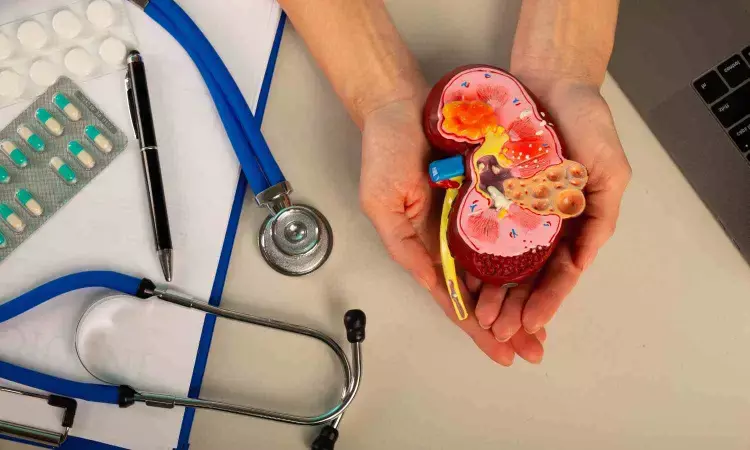- Home
- Medical news & Guidelines
- Anesthesiology
- Cardiology and CTVS
- Critical Care
- Dentistry
- Dermatology
- Diabetes and Endocrinology
- ENT
- Gastroenterology
- Medicine
- Nephrology
- Neurology
- Obstretics-Gynaecology
- Oncology
- Ophthalmology
- Orthopaedics
- Pediatrics-Neonatology
- Psychiatry
- Pulmonology
- Radiology
- Surgery
- Urology
- Laboratory Medicine
- Diet
- Nursing
- Paramedical
- Physiotherapy
- Health news
- Fact Check
- Bone Health Fact Check
- Brain Health Fact Check
- Cancer Related Fact Check
- Child Care Fact Check
- Dental and oral health fact check
- Diabetes and metabolic health fact check
- Diet and Nutrition Fact Check
- Eye and ENT Care Fact Check
- Fitness fact check
- Gut health fact check
- Heart health fact check
- Kidney health fact check
- Medical education fact check
- Men's health fact check
- Respiratory fact check
- Skin and hair care fact check
- Vaccine and Immunization fact check
- Women's health fact check
- AYUSH
- State News
- Andaman and Nicobar Islands
- Andhra Pradesh
- Arunachal Pradesh
- Assam
- Bihar
- Chandigarh
- Chattisgarh
- Dadra and Nagar Haveli
- Daman and Diu
- Delhi
- Goa
- Gujarat
- Haryana
- Himachal Pradesh
- Jammu & Kashmir
- Jharkhand
- Karnataka
- Kerala
- Ladakh
- Lakshadweep
- Madhya Pradesh
- Maharashtra
- Manipur
- Meghalaya
- Mizoram
- Nagaland
- Odisha
- Puducherry
- Punjab
- Rajasthan
- Sikkim
- Tamil Nadu
- Telangana
- Tripura
- Uttar Pradesh
- Uttrakhand
- West Bengal
- Medical Education
- Industry
Birth asphyxia linked to decreased renal function among children born to women with obstructed labour: Study

Birth asphyxia linked to decreased renal function among children born to women with obstructed labour suggests a new study published in the BMC Nephrology.
Over two million children and adolescents suffer from chronic kidney disease globally. Early childhood insults such as birth asphyxia could be risk factors for chronic kidney disease in later life. Our study aimed to assess renal function among children aged two to four years, born to women with obstructed labour. They followed up on 144 children aged two to four years, born to women with obstructed labour at Mbale Regional Referral Hospital in Eastern Uganda. We used serum creatinine to calculate the estimated glomerular filtration rate (eGFR) using the Schwartz formula. We defined decreased renal function as eGFR less than 90 ml/min/1.73m2.
Results: The mean age of the children was 2.8 years, standard deviation (SD) of 0.4 years. The majority of the children were male (96/144: 66.7%). The mean umbilical lactate level at birth among the study participants was 8.9 mmol/L with a standard deviation (SD) of 5.0. eGFR of the children ranged from 55 to 163 ml/min/1.73m2, mean 85.8 ± SD 15.9. Nearly one-third of the children (45/144) had normal eGFR (> 90 ml/Min/1.73m2), two thirds (97/144) had a mild decrease of eGFR (60–89 ml/Min/1.73m2), and only two children had a moderate decrease of eGFR (< 60 ml/Min/1.73m2). Overall incidence of reduced eGFR was 68.8% [(99/144): 95% CI (60.6 to 75.9)]. They observed a high incidence of reduced renal function among children born to women with obstructed labour. We recommend routine follow up of children born to women with obstructed labour and add our voices to those calling for improved intra-partum and peripartum care.
Reference:
Mukunya, D., Oguttu, F., Nambozo, B. et al. Decreased renal function among children born to women with obstructed labour in Eastern Uganda: a cohort study. BMC Nephrol 25, 116 (2024). https://doi.org/10.1186/s12882-024-03552-8
Dr. Shravani Dali has completed her BDS from Pravara institute of medical sciences, loni. Following which she extensively worked in the healthcare sector for 2+ years. She has been actively involved in writing blogs in field of health and wellness. Currently she is pursuing her Masters of public health-health administration from Tata institute of social sciences. She can be contacted at editorial@medicaldialogues.in.
Dr Kamal Kant Kohli-MBBS, DTCD- a chest specialist with more than 30 years of practice and a flair for writing clinical articles, Dr Kamal Kant Kohli joined Medical Dialogues as a Chief Editor of Medical News. Besides writing articles, as an editor, he proofreads and verifies all the medical content published on Medical Dialogues including those coming from journals, studies,medical conferences,guidelines etc. Email: drkohli@medicaldialogues.in. Contact no. 011-43720751


